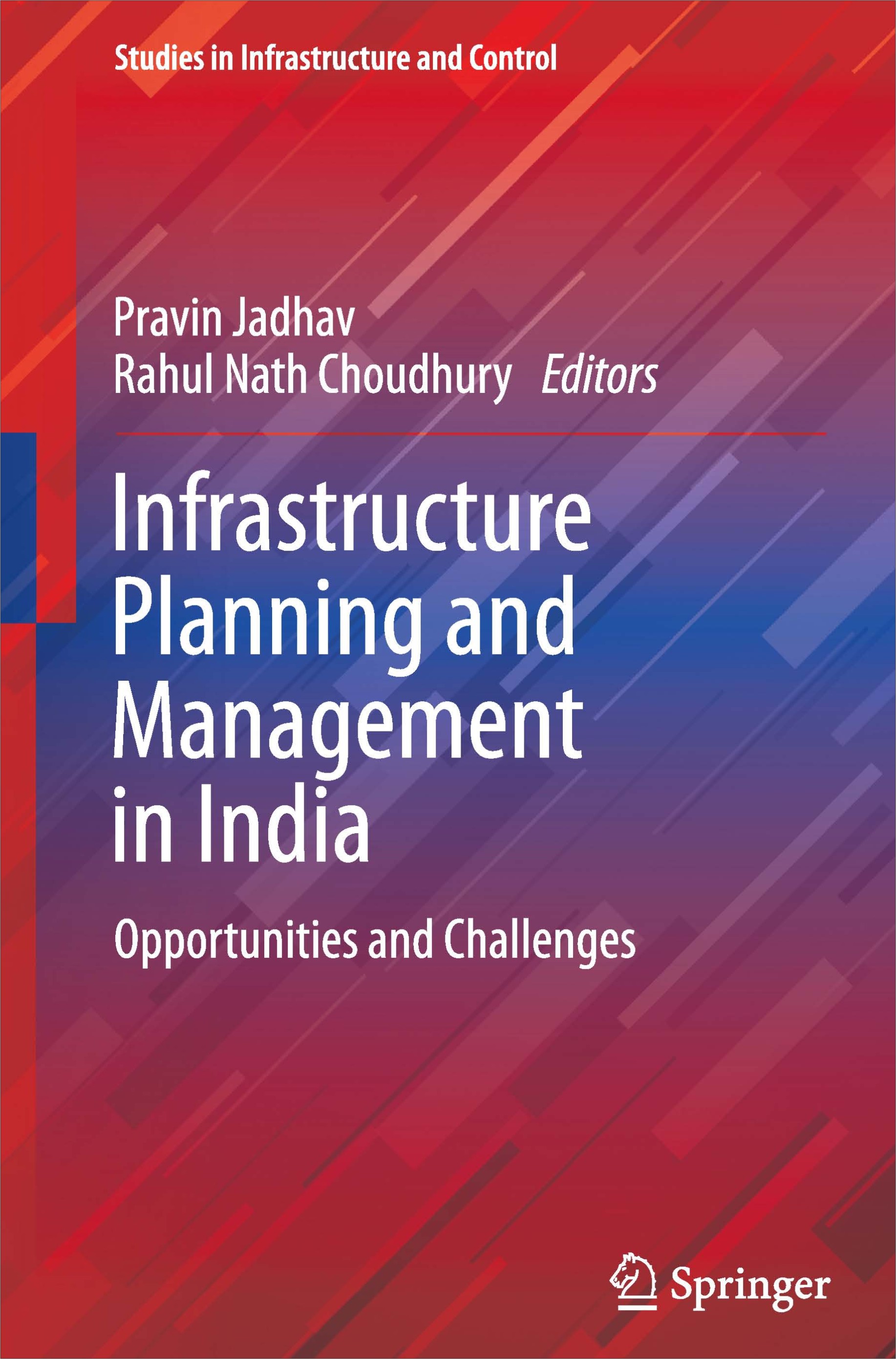
Realizing the importance of the subject, we are making an attempt
to combine ideas from some of the established scholars and practitioners in
various fields of infrastructure policy and management. This book presents
those ideas into a structured and systematic manner. This book is an attempt to
contribute to this sector by addressing the opportunities and the challenges
faced by the industry. The primary objective of the book is to critically
analyse sectoral Infrastructure planning and management from an Indian
perspective. As discussed above, it is imperative to understand different
planning and management practices, their significance, and issues to have
sustainable infrastructure development. This book tries to identify empirical
risks and challenges in the planning and management of infrastructure in India.
This book also analyses diverse management solutions that can support better
infrastructure management across sectors and critically discuss the different
ways to overcome these risks related to infrastructure planning and management
in India. This book also covers real-world case studies related to
infrastructure management from various stakeholders involved in the management
of infrastructure. This book covers four crucial sectors, viz. transportation,
power, smart cities, and IT/digital infrastructure. Accordingly, this book has
four sections. There are eleven chapters in the book of which four are under the
first section covering transport infrastructure. In the second section of the
book, we have three chapters discussing various issues in the energy and power
infrastructure sector. Third section of the book explores the three important
urban infrastructure issues, while the final section focuses on the growing
digital infrastructure in India. In the existing literature, there is no book
available that has attempted to address comprehensive issues of infrastructure
management at the sectoral level in India. The available books have discussed
infrastructure management at the macro-level or focusing on only one sector.
Hence, this is an essential book considering the lacuna in the literature.
Sustainable infrastructure is very much crucial for world development.
Therefore, the current research is critical in this perspective. The book will
be a primary and pioneering attempt to address this vital issue.
Part I
Transport Infrastructure: Fostering the Economic Growth
1 Road Safety Conditions and Management in
India: Challenges and Opportunities by Jiten Shah, Khushbu Bhatt, Priyank
Trivedi, and Said Easa
2 Port Development: History, Present and
Future Challenges by Abhijit Singh
3 Emerging Scope of Airport Infrastructure:
Case of India by Manish Yadav and Tarun Dhingra
4 Rail Infrastructure—Journey Since Indian
Independence and Beyond by Tarun Dhingra and Sanjeev Sharma
Part II
How Power Sector is Managed in India?
5 Power Sector Infrastructure Management:
Issues and Challenges by Anil Kumar and Avishek Ghosal
6 Renewable Energy Management: An Analysis of
the Status Quo by Nikita Das
7 Energy, Climate Change and Sustainable
Development in India by Shailly Kedia and Nivedita Cholayil
Part III The Emergence of Modern Cities: Smart
or Sustainable?
8 Smart City: Sustainable City for Tackling
Urban Challenges by Vinay Kandpal, Vikas Tyagi, and Harmeet Kaur xvii xviii
Contents
9 Electric Mobility and Electric Vehicles
Management in India by Shikha Juyal
10 Sustainable Infrastructure Development in
India: Drivers and Barriers by Muhammadriyaj Faniband, Kedar Vijay Marulkar,
and Pravin Jadhav
Part IV
Developing Digital Infrastructure
11 Recent
Trends in Digital Infrastructure in India by Krishna Teja Perannagari and
Vineet Gupta
Dr. Pravin
Jadhav obtained Ph.D. from the Indian Institute of Foreign Trade (IIFT)
under the Ministry of Commerce and Industry, Government of India in 2015. Dr.
Jadhav was associated with IIFT from January 2008 to July 2012. In IIFT, he did
extensive research and undertook various research studies for the Ministry of
Commerce and Industry, Ministry of Science and Technology, and the European
Union. He was also served as a researcher in the Planning Commission working
Sub-Group on Technology Intensity in India's Manufacturing Exports, Planning
Commission for framing the 12th Five Year Plan (2012-2017).
Presently, he has been working as an assistant professor at the
Institute of Infrastructure, Technology, Research And Management (IITRAM), an
Autonomous University established by the Government of Gujarat. Currently, he
is working in the area of infrastructure planning and management.
Dr Rahul Nath Choudhury is a trade economist currently associated
with the Indian Council of World Affairs, New Delhi as a Research Fellow. His
primary research interest includes foreign direct investments, international
trade, political economy, geo-economics, and digital trade. Rahul has diverse
experience of working in both the public and the private sector in academia and
the industry in various capacities. He has contributed to numerous book
chapters and academics journals. Rahul has been a freelance consultant for
organizations like ADB, IFC, AEPC, CII, and a few MNCs as well.